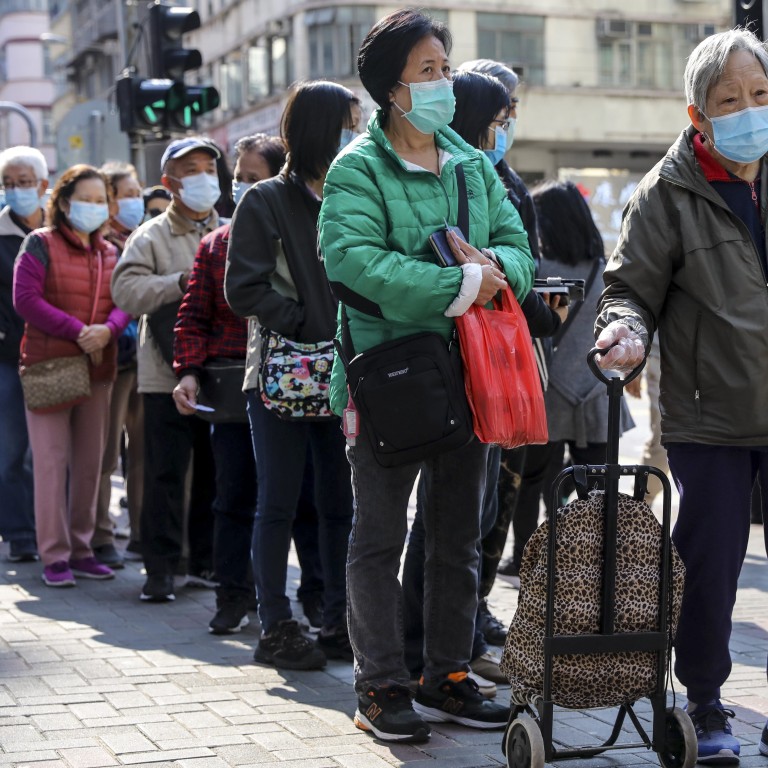
Protest shadow over coronavirus? Hong Kong civic groups banned from using district council funds to purchase yellow and black masks for mass distribution
- Pro-democracy councillors say colour restriction is associated with anti-government protests that have gripped Hong Kong since June last year
- But Home Affairs Department says masks should be light-coloured so users can easily spot stains, though it fails to explain why yellow is not a light colour
Civic groups in Hong Kong have been banned from using district council funds to purchase yellow and black masks for mass distribution, despite a citywide shortage of the protective gear amid the coronavirus outbreak.
Pro-democracy councillors told the Post the colour restriction was associated with the anti-government protests that had gripped the city since June last year, but the Home Affairs Department said masks should be light-coloured so the users could easily spot stains on their surface.
The coronavirus, which causes the disease known as Covid-19, has so far infected more than 90 people in the city, killing two. The crisis has prompted some district councils, dominated by pro-democracy councillors, to allocate funds to apolitical civic groups to enhance residents’ protection against the disease.
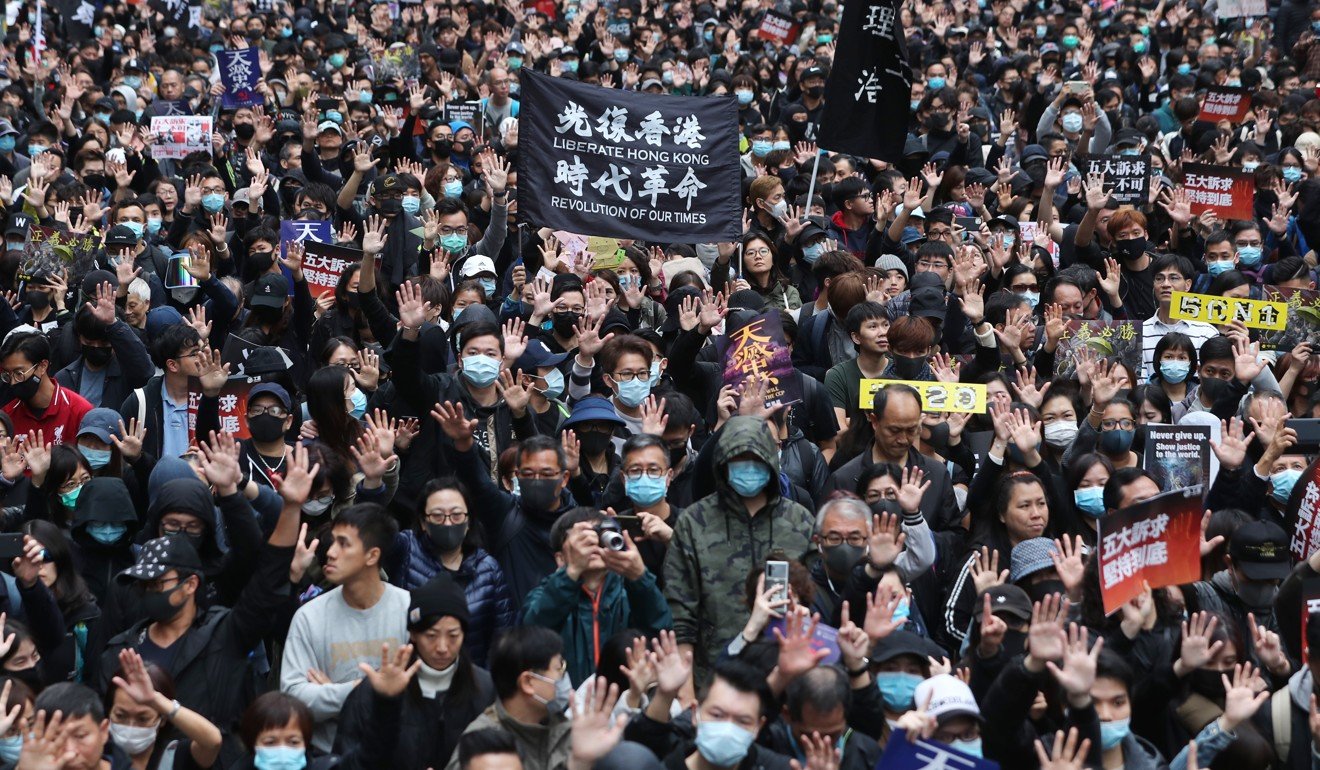
Since the coronavirus outbreak erupted in Hong Kong in January, residents have been seen scrambling for supplies of protective gear, such as masks and sanitisers. Even though the supplies increased in February, the products are being sold at such a high price that they have mostly been beyond the reach of the low-income families or the elderly.
The Sham Shui Po District Council’s Working Group on Healthy and Safe Community on February 17 allocated HK$1.3 million (US$167,000) to eight organisations to procure and distribute the protective gear or to organise events to raise awareness of the deadly disease.
But a civic group said it was served a notice by the council’s secretariat on Tuesday, after winning a HK$540,000 tender.
The notice, obtained by the Post, listed new restrictions by limiting all procured face coverings or ear-loop surgical masks to five colours – green, blue, white, pink, and purple. It also mentioned the face coverings will have to be of a “standard size”, meeting the “technical requirements of supplies to the Government Logistics Department”.
Civil servants may regard yellow and black as sensitive colours as they were associated with the anti-government protests. But the restrictions should not apply to supplies distributed among the public
The group’s founder, who only revealed his surname Chan, said before they received the notice, they had already ordered around 100,000 masks from three suppliers, including 30,000 pale yellow ones from the United States, which cost HK$3.5 each, as well as 70,000 blue and green masks from Tunisia and Canada, respectively.
“[The secretariat] reminded me over the phone that if I do not strictly comply with the government standard, we will not be reimbursed,” Chan said.
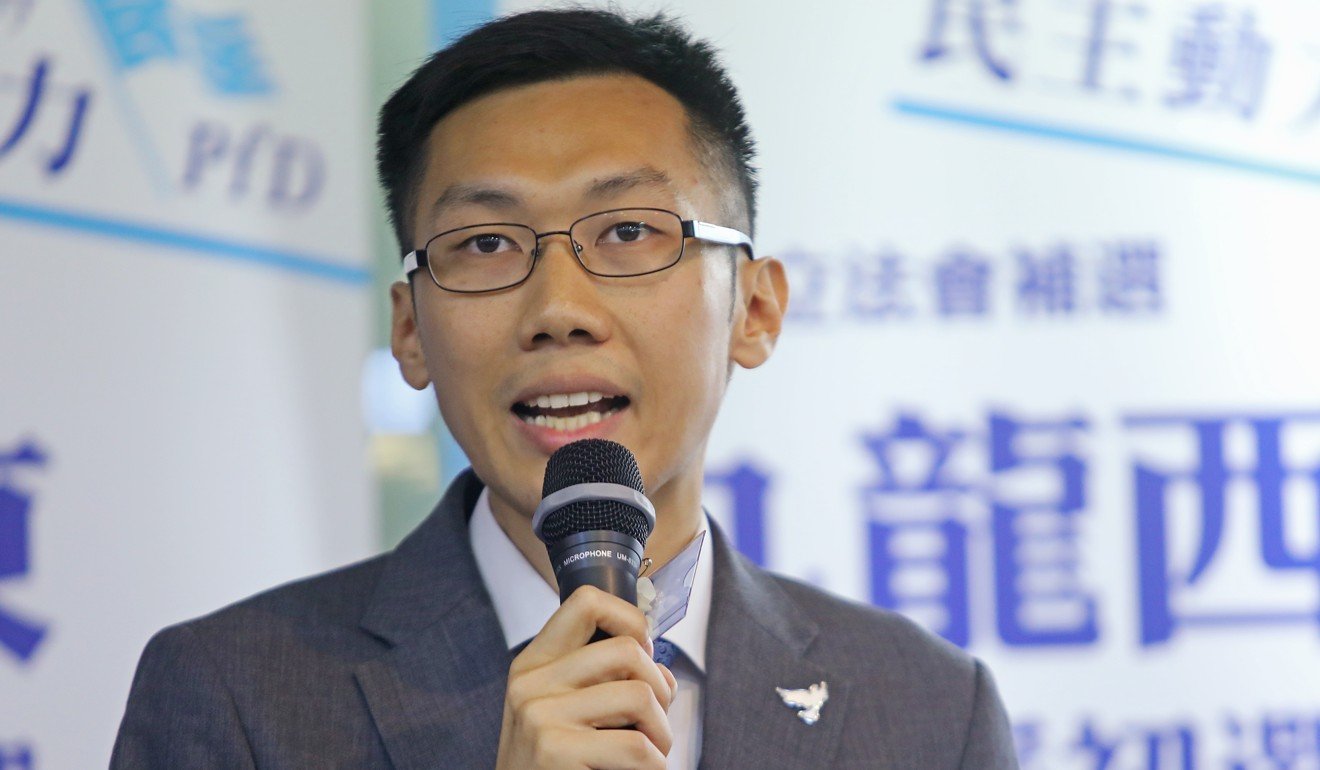
The colour restriction came on Tuesday, while the group had planned to distribute the masks among residents in Sham Shui Po from Saturday. Chan said he had no choice but to cancel the order of all pale yellow masks and procure blue ones which are each costlier by HK$1 more at HK$4.5.
He said their group had to settle for buying 5,000 less masks using the same budgeted amount “just to avoid the yellow colour”. He said that the abrupt change in orders would also result in a delayed delivery and a postponement of planned events to hand out the items.
“When the government itself failed to supply sufficient masks for the residents, it shouldn’t have imposed unnecessary restrictions,” he said.
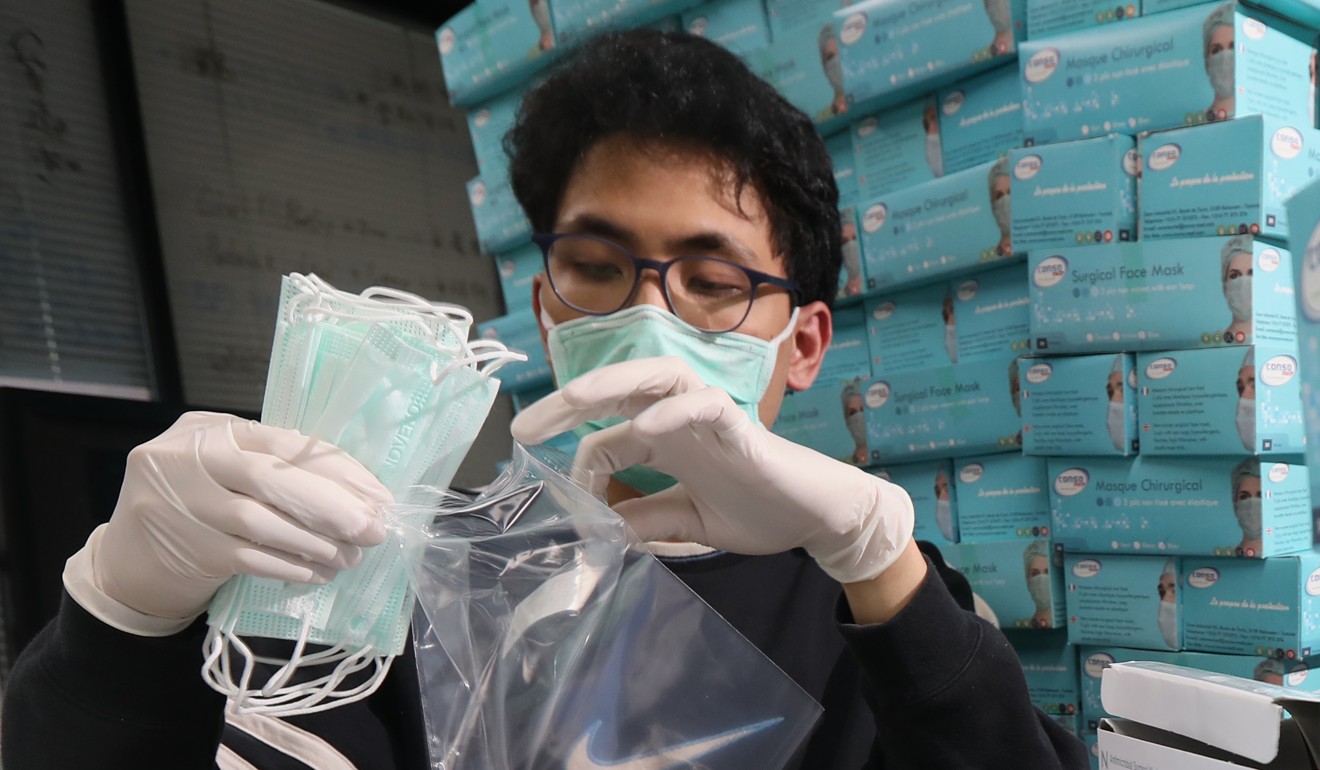
Sham Shui Po district councillor Ramon Yuen Hoi-man, convenor of the council’s working group, accused the Home Affairs Department of not respecting the decisions of the council, as the restrictions were not mentioned when the members had discussed tender specifications earlier in February.
Yuen, a member of the Democratic Party, heard some groups had cancelled orders of black masks after the notice. “Civil servants may regard yellow and black as sensitive colours as they were associated with the anti-government protests,” he said. “But the restrictions should not apply to supplies distributed among the public.”
The government’s move is against the project objective to respond to the mask shortage swiftly
In Sha Tin district, a charitable organisation which was allocated HK$2 million to procure masks and sanitisers for mass distribution was also confused about the government notice, councillor Chris Mak Yun-pui said.
Mak said as the size of the masks had also been limited to 18cm x 9cm on the notice, charitable organisations could not procure smaller masks for children, or round-shaped masks such as N95 respirators.
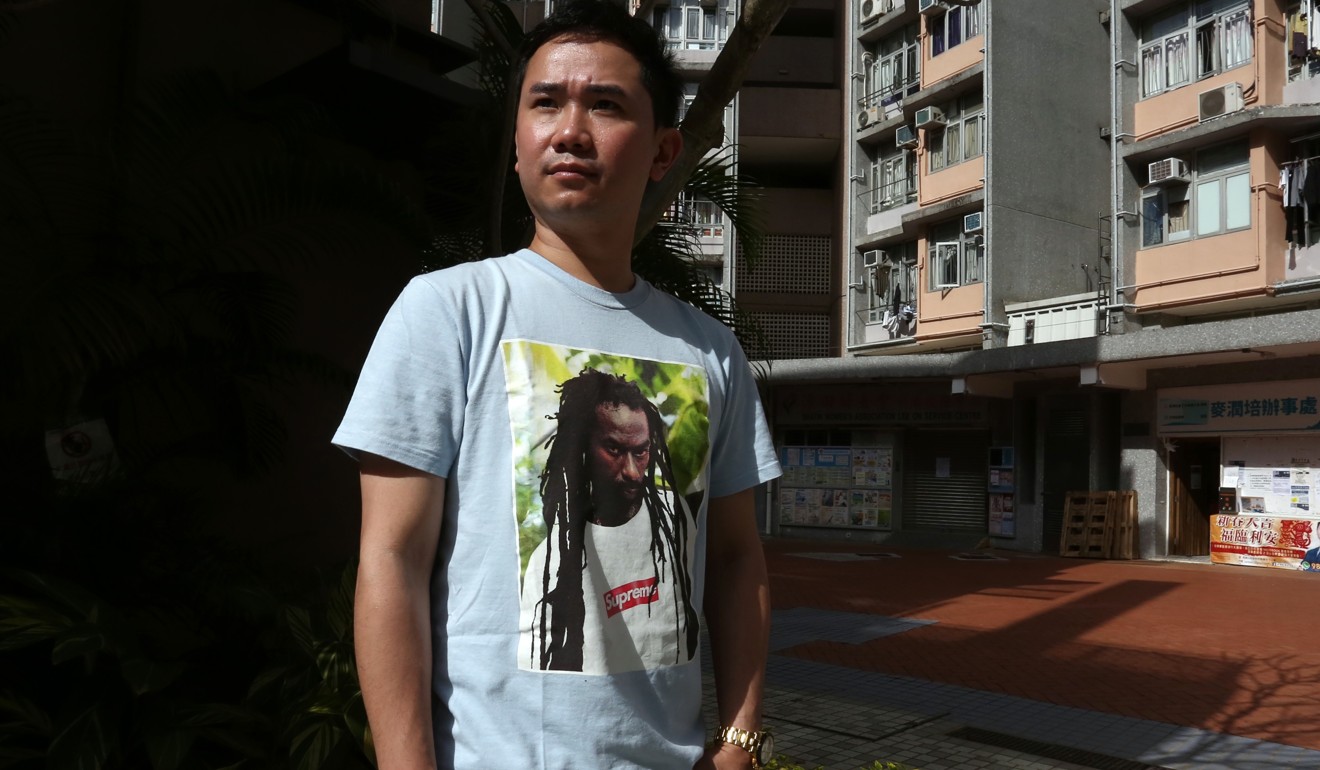
“All the limitations have added new hurdles to the procurement. The government’s move is against the project objective to respond to the mask shortage swiftly,” he said.
The Sha Tin and Sham Shui Po district offices of the Home Affairs Department told the Post that all procured masks should be light-coloured to so the users could easily spot stains on their surfaces, but failed to explain why yellow was not regarded as a light colour.
“If the items provided by the approved co-organisers fail to meet the requirements, they cannot be reimbursed for the District Council’s funding,” the Sha Tin office of the Home Affairs Department said.

